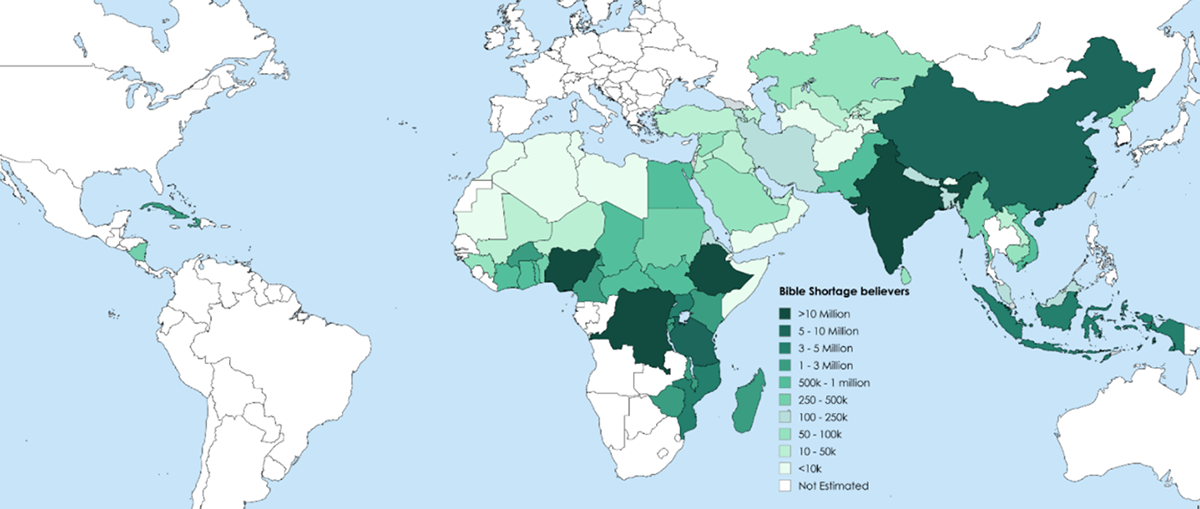Millions of Christians don’t have access to the Word of God, says a report issued today.
But media can go where the printed Word doesn’t always reach.
 TWR (also known as Trans World Radio), one of the largest Christian media ministries in the world, broadcasts in 200 languages, reaching millions of people across 190 or so countries, noted Andy Schick, the ministry’s president and CEO. “We’re online, we’re on the air, we’re on the ground,” he said.
TWR (also known as Trans World Radio), one of the largest Christian media ministries in the world, broadcasts in 200 languages, reaching millions of people across 190 or so countries, noted Andy Schick, the ministry’s president and CEO. “We’re online, we’re on the air, we’re on the ground,” he said.
Through Scripture-saturated programming such as Thru the Bible, Mission 66 and Daily Audio Bible, TWR is able to reach places with the greatest need for the truth found only in the Bible.
The Bible Access List, issued by the newly formed Bible Access Initiative, highlights countries where Bible access is blocked by law, the actions of religious extremists or other limitations, as well as countries where there simply aren’t enough Bibles to meet the demand.
The report estimates that 100 million Christians worldwide don’t have access to God’s Word.
“A modern famine persists, not due to apathy, but because of barriers that prevent people from accessing the Bible,” said Wybo Nicolai, co-creator of the Bible Access List. “The barriers differ in form, but the result is the same: Millions live cut off from God’s Word.”
Based on its analysis, the report identified the following five countries as most restrictive:
1. Somalia
2. Afghanistan
3. Yemen
4. North Korea
5. Mauritania
Its Bible Shortage List includes countries with varying levels of restriction but the most unmet hunger for God’s Word, starting with Democratic Republic of Congo, Nigeria, Ethiopia, India and China.
But TWR is able to bring the Word to each of these countries, whether through radio, the internet, media players or videos.
For instance, TWR’s broadcasts into Pakistan, Afghanistan, and North India generate thousands of responses each year from those who want to know more about Jesus. In Afghanistan, TWR’s Women of Hope broadcasts in the Pashto language address issues women in that culture face from a biblical perspective.
Real Bible access means reaching people where they are, said Jaap van Bezooijen, who oversaw research and systems development for the Bible Access List. “While digital tools are part of the solution,” he said. “For those who are poor, illiterate, offline or living where digital Bible access is monitored and unsafe – printed and audio Bibles are still essential.”
TWR is committed to helping fill that need by whatever means, Schick said. “Should a carrier pigeon be the right strategy somewhere, then someone from TWR will be figuring out the best birdseed to buy,” he joked recently.
The Bible Access Initiative is a collaboration of Bible agencies and mission partners founded by Open Doors International and the Digital Bible Society. Details, data, country profiles and maps can be seen here.
Image courtesy of IMB.com: (above right) Women of Hope programs offer practical and spiritual advice to women like this mother in Afghanistan, where access to Scripture is extremely limited.




